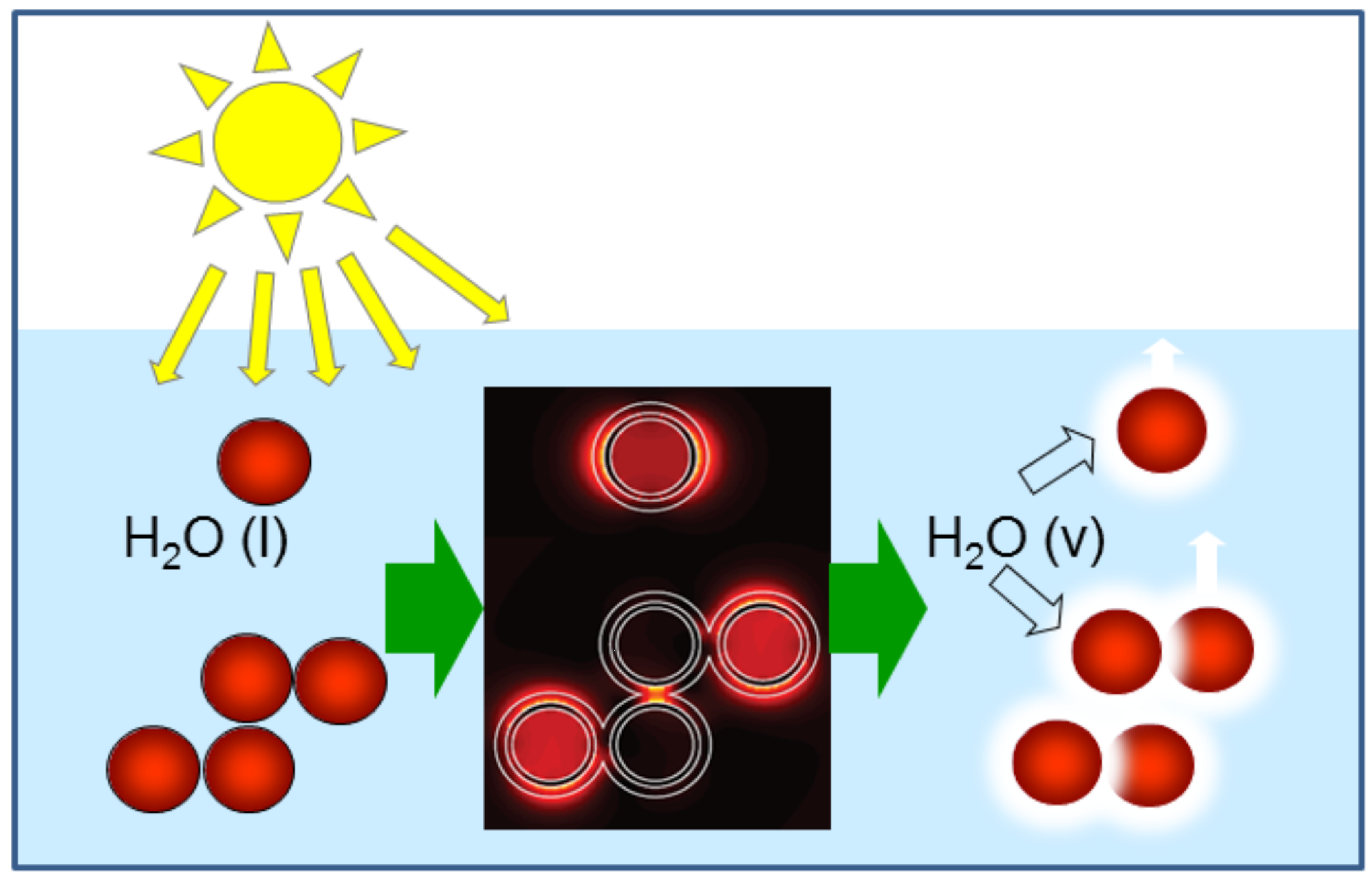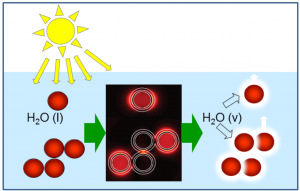When we think of solar energy we picture photovoltaic arrays on the roofs of buildings and houses. But solar energy is much more than that. Solar concentrators with molten salt storage are being built and deployed at a number of sites in North America and Europe. But that’s not all. Researchers at Rice University have been working with nanoparticles so small that they are less than the wavelength of light. At the nano level the particles transform energy from sunlight into steam almost instantly with efficiencies nearly 50% higher than current solar panels.
The light absorbing carbon or metal nanoparticles are submerged in water. Without any other energy source other than sunlight they almost instantly vaporize the water into steam reaching temperatures of 150 Celsius (300 Fahrenheit). In ice water the conversion to steam takes a mere 5 seconds. The nanoparticles convert 80% of the energy they absorb with carbon particles demonstrating greater efficiency than metal. The one catch is the technology is meant for small deployments. You cannot build a solar thermal plant with this technology to drive steam turbines and generate energy for large area deployment.
So where can it be used immediately? Wherever compact, standalone solar energy conversion is needed. This makes the technology suitable for locations off the grid, a great tool for sterilizing equipment for medical, dental and laboratory use, or for cooking and other household requirements in locations in the Developing World.

















